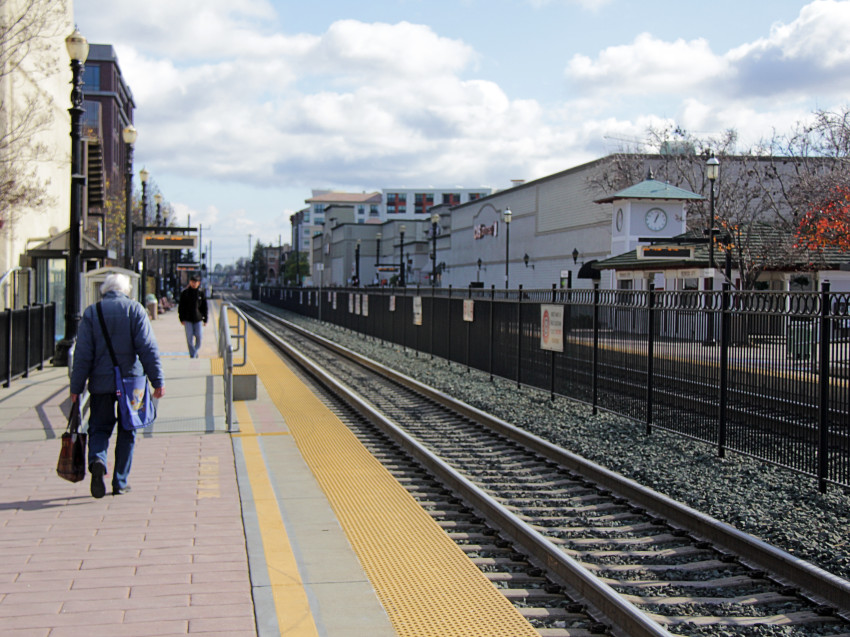The Caltrain Board of Directors on Thursday postponed previously-approved fare increases until after June next year, in order for the transit system to continue to be affordable for low-income riders who rely upon the system during the COVID-19 pandemic.
The Board also approved a new Equity Policy that aims to make Caltrain more accessible and relevant to lower income people and groups that have been historically marginalized and underrepresented in transit planning.
Recently, 50 percent discounts on Caltrain have been offered to eligible low income riders as part of the Clipper Start program. The equity framework envisions preserving this discount in the longer term, and includes policies that would “improve connections to other local and regional systems that disadvantaged riders are more likely to rely on,” and “support increased off-peak service to make the system more relevant for workers with non-traditional work hours,” according to Caltrain.
“Under the framework, Caltrain would also work toward better regionally coordinated fare and transfer policies,” the agency said.
Now, the question is how to afford the newly approved equity policies.
Caltrain, which relies heavily upon ticket sales to pay for operating costs, saw a 95 percent drop in ridership during the COVID-19 pandemic, and faces an $18.5 million budget shortfall next fiscal year.
The transit agency is hoping at least two-thirds of voters in San Mateo, San Francisco and Santa Clara counties will approve Measure RR on the Nov. 3 ballot. Funds from the 1/8 cent sales tax could help with the shortfall and also with plans to enhance the system and make it equitable and affordable for all riders, the agency said.
If the measure doesn’t pass and there’s not additional funding identified, “the rail service is at risk of shutting down,” the transit agency said. “Cutting service would reduce expenses, but that savings could be negated by reduced revenue from the system’s GoPass program, which provides discounted annual passes to participating employers.”
Even shutting down the system comes with a hefty cost. Caltrain would still be responsible for maintaining the corridor for freight rail operations at an estimated cost of over $60 million for 12 months.
“It would also take more than a year to restart service after a shutdown,” the agency said. “The remobilization and retraining of staff over that time would cost an estimated $93 million.”
A shutdown of Catrain would also strand low-income workers who rely upon train service to get to work. Many of the over 3,500 weekday riders who continued to rely upon the system for essential travel during the COVID-19 pandemic were lower-income workers headed to frontline jobs, the transit agency said.
“Any shutdown of the service would be the most inequitable consequence possible for all riders who depend upon this critical service,” Caltrain Board Chair Dave Pine said, adding that it is “imperative that the system has new and reliable revenue to maintain service now and in the future.”






